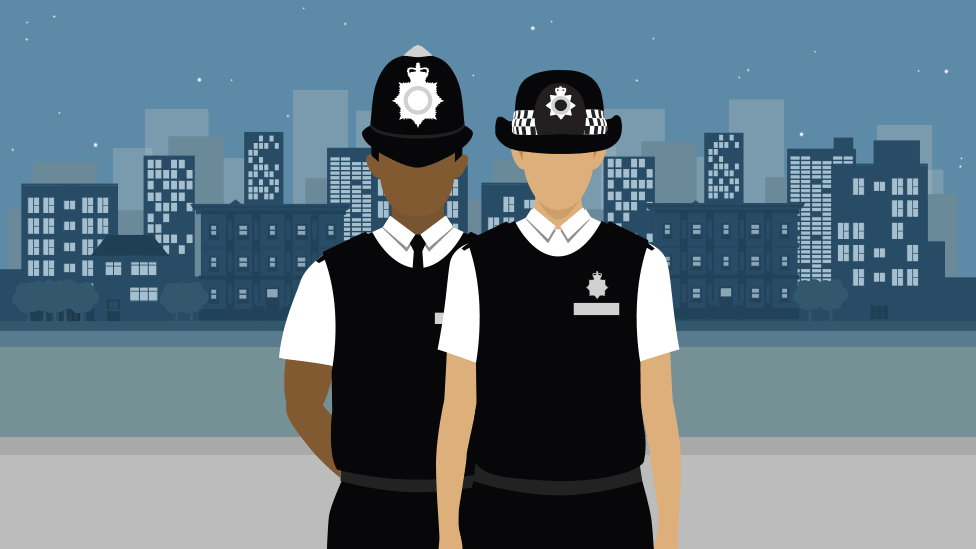Police 2% pay rise 'a punch on the nose', Cressida Dick says
- Published
- comments
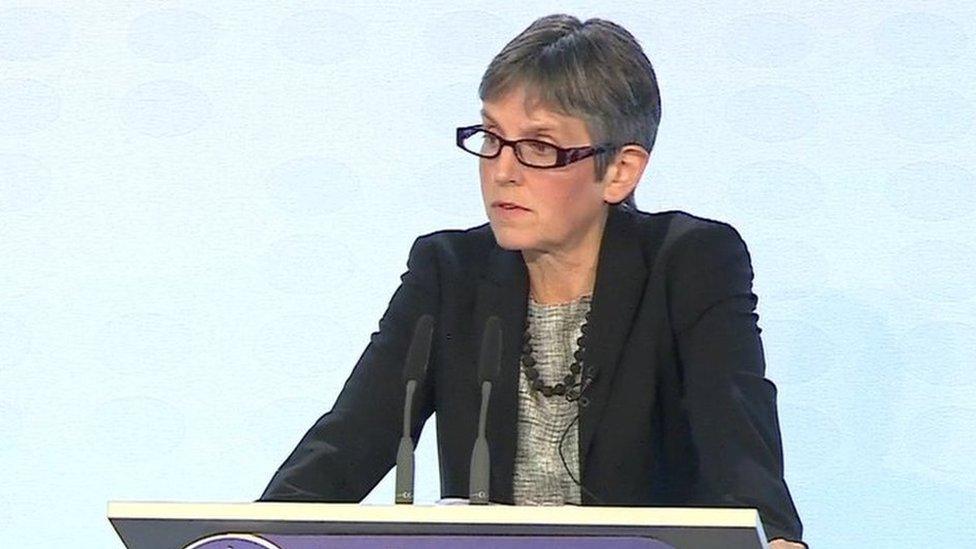
The government's refusal to increase police pay by 3% in England and Wales is a "punch on the nose", Britain's most senior police officer has said.
Cressida Dick said she was "extremely disappointed" by the decision to give police a 2% rise, against the recommendation of an independent board.
The Met Police chief said she did not want police to be affected by understaffing like the prison service.
Home Secretary Sajid Javid said it had been a collective government decision.
"When it comes to pay recommendations… for millions of public sector workers… you have to, as a government, take them all into account," he told the Police Superintendents' Association annual conference in Leicester.
Mr Javid said that he understood concerns, however.
"This is a reflection of trying to strike that balance and I'm not pretending it's easy," he said, adding that he knows there is "a need for more resources".
The comments from Ms Dick come as a public spending watchdog called the government's approach to police funding "ineffective".
According to the National Audit Office, external, the Home Office does not know whether the police system in England and Wales is "financially sustainable" following widespread funding cuts.
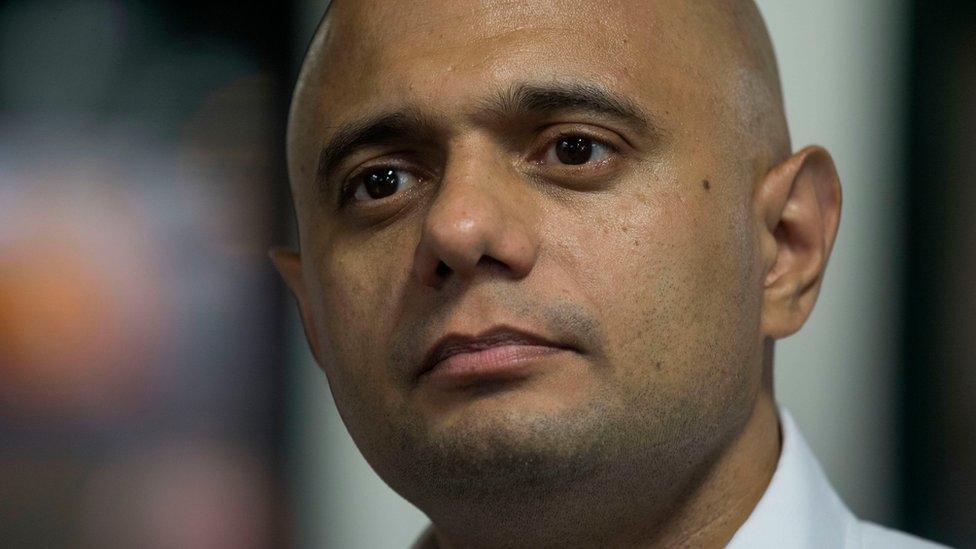
Sajid Javid said he will "continue to fight on the police's behalf"
Ms Dick told the Police Superintendents' Association that the government decision on pay would make it harder to recruit and retain officers.
"I do think that decision will have affected morale," she said. "I don't want the government to wait until we are struggling like the prison service with chronic understaffing."
She said the decision to impose the 2% pay award for pensionable pay flew in the face of evidence and rational argument, adding that it "feels like 1% to our officers".
"I am extremely disappointed by that outcome," she said, adding that police had worked "tirelessly" with the Home Office and the independent Pay Review Body (PRB) to make the case for "fair pay" for officers.
Ms Dick noted it was the second year in a row the PRB recommendation had been rejected, adding that it leaves the whole process "in tatters".
The Home Office acknowledges forces are stretched but says it has increased funding this year and points out that new officers are being recruited.
However, Ms Dick argued that it was proving difficult to recruit in the Met, partly, she said because of officers' pay, which starts at £22,300 in London.
At the conference Mr Javid also said he will ensure police chiefs can award bonuses of up to £4,000 for superintendents in challenging roles and officers in hard-to-fill jobs.
"I do fully recognise the pressures on policing so let me be very clear with you," he said. "I will continue to fight on the police's behalf so that you have the resources that you need to do your jobs effectively."
BBC home editor Mark Easton said the Home Office had faced a double whammy with Ms Dick's comments and the audit office's report, which was "one of the most critical I can remember".
"In normal circumstances the home secretary might be on the ropes on a day like today, but I think because Sajid Javid is new to the job I think there's understanding he's still getting his feet under the table," he said.
"But of course the public is getting more concerned about crime, there's still the threat from terrorism, and I don't think he's going to be able to dodge these questions for that much longer."

At the scene
By BBC News home affairs correspondent Danny Shaw
Allow X content?
This article contains content provided by X. We ask for your permission before anything is loaded, as they may be using cookies and other technologies. You may want to read X’s cookie policy, external and privacy policy, external before accepting. To view this content choose ‘accept and continue’.

The police superintendents warmed to Sajid Javid. They laughed at his joke about Bodyguard, the TV drama focusing on a protection officer assigned to look after a home secretary.
And they enjoyed the conference hall banter between him and his brother, Bas, a chief superintendent in the West Midlands who was watching the speech.
The brothers later embraced and posed for pictures.
Having a close relative in the police has clearly helped Mr Javid understand the challenges facing the service.
Finding the answers, though, is less straightforward.
The home secretary is banking on squeezing more money out of the Treasury in the next spending review: there's "no plan B" he said.
And unlike the earlier part of his address, he wasn't joking.

Since March 2010 - the last set of Home Office figures before the Conservative/Lib Dem coalition came into power - there has been a cut of 21,330 police officers.
Ms Dick told the conference that the force had faced "unprecedented challenges", noting that some officers are working "longer and harder".
She announced a new scheme to encourage recently retired officers to return to work, saying "expertise" was being lost.
"This is not a service that needs reform, this is a service that needs support and needs resources... the NAO report shows this," she said.

The NAO report on policing in England and Wales found:
It took 18 days to charge an offence for the year ending March 2018 - four days longer than for the year ending March 2016
The arrest rate fell to 14 arrests per 1,000 population in 2016-17, down from 17 per 1,000 population in 2014-15
There have been fewer breathalyser tests, motoring fixed penalty notices and convictions for drugs trafficking and possession since 2010
33% of victims were not happy with police response in the year ending March 2018, up from 29% in the year ending March 2016

A Home Office spokesman disputed some of the NAO's findings - saying it had "a strategic direction" and last year conducted a substantial review of police pressures.
"Our decision to empower locally accountable police and crime commissioners to make decisions using their local expertise does not mean that we do not understand the demands on police forces," said the spokesman.
"The report does not recognise the strengths of PCCs and chief constables leading on day-to-day policing matters, including on financial sustainability.
"We remain committed to working closely with police and delivered a £460m increase in overall police funding in 2018/19, including increased funding for local policing through council tax," the spokesman said.
Shadow home secretary Diane Abbott said: "We need to listen to people like Cressida Dick and the government needs to make the effort to understand what the effects of its cuts are, not just put the blame on police and crime commissioners."
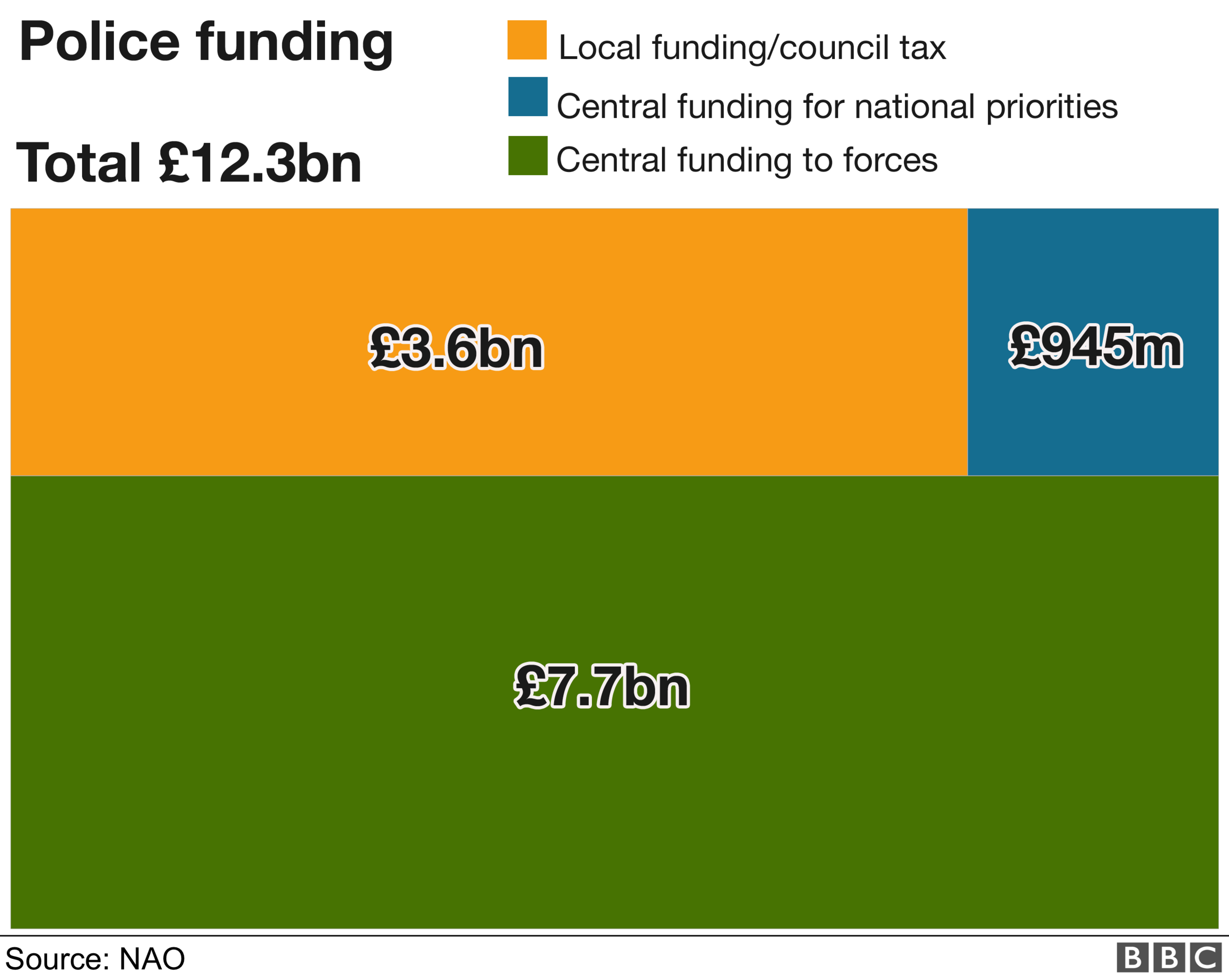
Offers for 2018-19 have not yet been made in Scotland or Northern Ireland.
A Scottish government spokesman said: "The Police Negotiating Board (PNB) continues to discuss police officer pay and there were constructive discussions at the latest meeting today. PNB will refer its agreement to Scottish ministers for approval in due course."
The starting salary for newly-recruited police constables in Scotland is higher than in England and Wales.
The situation in Northern Ireland is yet to be determined because of the absence of a devolved administration.
- Published11 September 2018
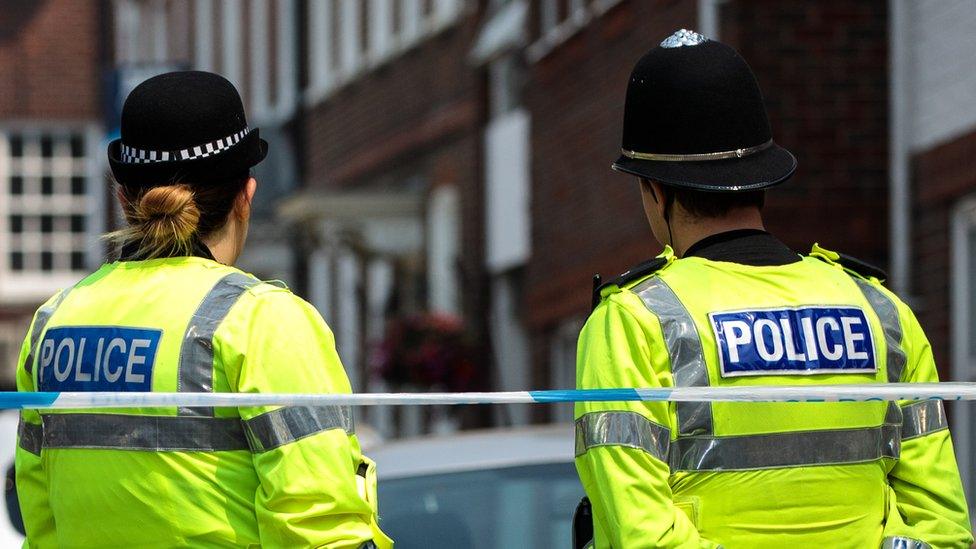
- Published19 July 2018
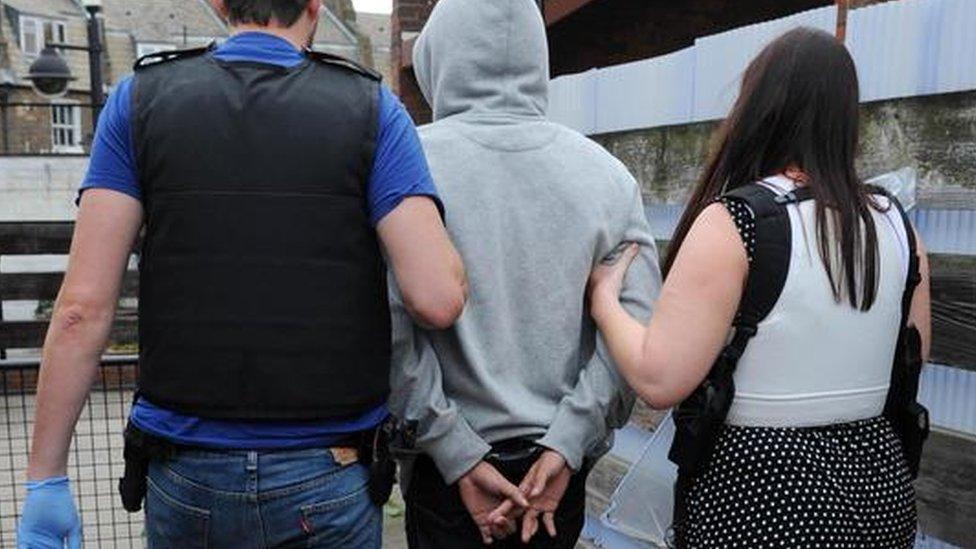
- Published16 May 2018
